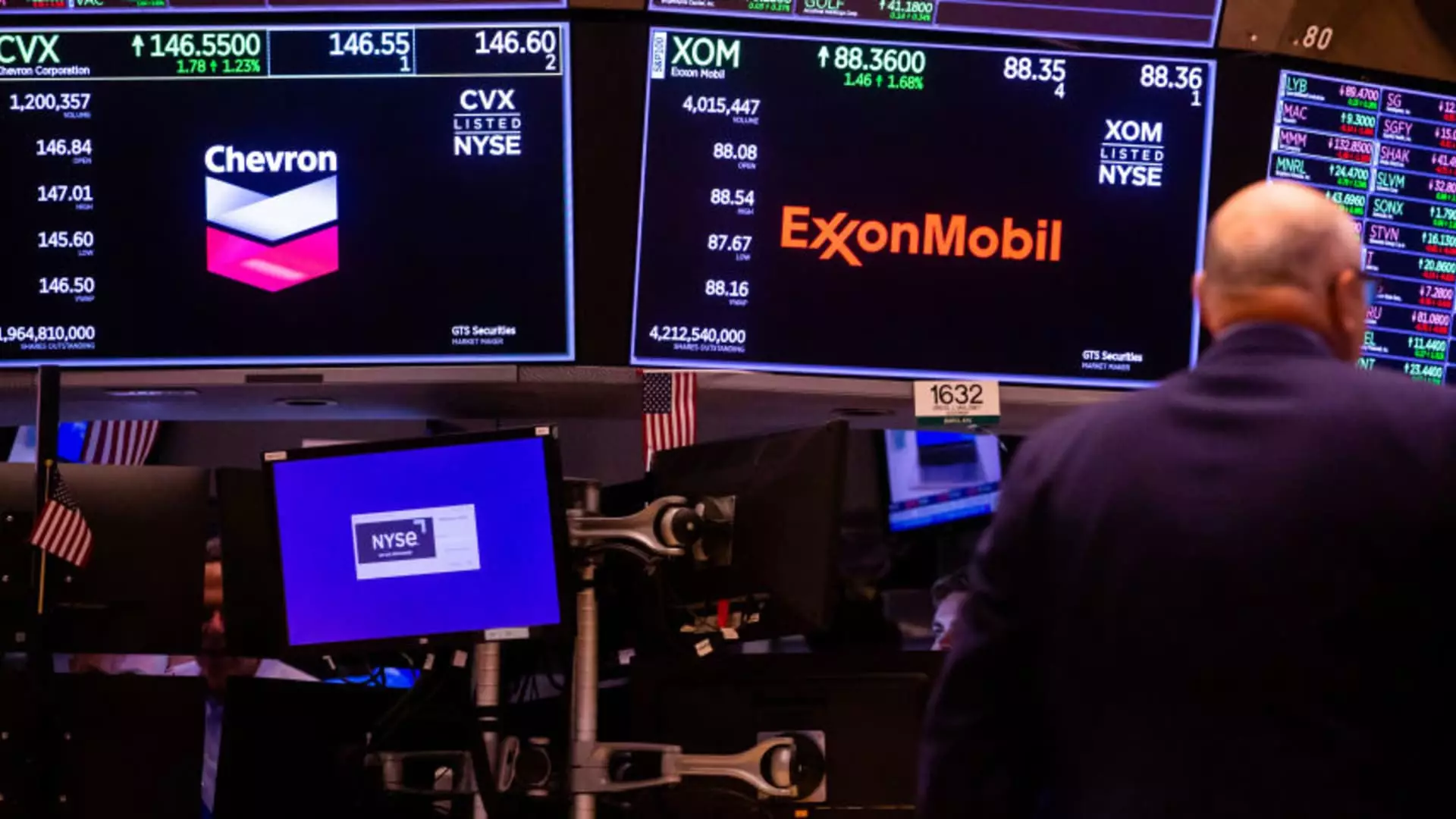The ongoing battle between Exxon Mobil and Chevron over lucrative offshore oil assets in Guyana has become a focal point in the energy sector. As the two U.S. oil majors compete for dominance in this particular area, the outcome of this feud could have significant implications for the stock performance of both companies. Kevin Holt, senior portfolio manager of the Invesco Energy Fund (FSTEX), has highlighted the importance of this dispute in determining which of the two stocks will come out on top this year.
Exxon has been the front-runner in terms of stock performance, having significantly outpaced Chevron this year with gains of roughly 15% compared to Chevron’s 6%. The rise in Exxon’s stock value has been attributed to its outperformance in the energy sector and the broader market. On the other hand, Chevron has lagged behind, facing challenges such as production issues in the Permian Basin and cost overruns at its Tengiz project in Kazakhstan. The outcome of the dispute over the Stabroek Block in Guyana could play a crucial role in determining Chevron’s performance in the second half of the year.
Exxon’s lead in the offshore oil development in Guyana, with a 45% stake in the Stabroek Block, has put it in a strong position. However, Chevron is looking to enter the fray through its pending acquisition of Hess Corp, which holds a 30% stake in the same asset. The arbitration court case initiated by Exxon to defend its right of first refusal over Hess’ assets has added a layer of complexity to the situation. The outcome of this arbitration will likely determine the future trajectory of both Exxon and Chevron’s stock performance.
As of April 30, Exxon and Chevron are the top two holdings in the FSTEX fund, representing a significant portion of its total assets. Kevin Holt has expressed his views on the potential outcomes of the arbitration, stating that if Chevron and Hess win, Chevron is likely to outperform Exxon in the second half of the year. Conversely, if Exxon emerges victorious, it may continue to marginally outperform, given its strong performance thus far.
The Guyana offshore oil development has been hailed as one of the best projects the oil sector has seen in 25 years, with productive wells at a relatively low cost. As resources become more constrained and onshore shale plays peak, this offshore opportunity becomes increasingly valuable. The potential closure of the Hess deal could significantly benefit Chevron, but if the arbitration case favors Exxon, it could present challenges for the company.
The Exxon Mobil and Chevron dispute over offshore oil assets in Guyana has become a critical factor in assessing the performance of these two oil giants. The outcome of the arbitration will not only impact their stock prices but also their long-term strategic positions in the industry. Investors are closely monitoring the situation, waiting to see how this feud unfolds and what it means for the future of both companies in the energy sector.

